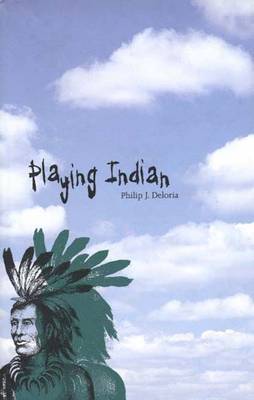Yale Historical Publications
1 total work
At the Boston Tea Party, colonial rebels played Indian in order to claim an aboriginal American identity. In the nineteenth century, Indian fraternal orders allowed men to rethink the idea of revolution, consolidate national power, and write nationalist literary epics. By the twentieth century, playing Indian helped nervous city dwellers deal with modernist concerns about nature, authenticity, Cold War anxiety, and various forms of relativism. Deloria points out, however, that throughout American history the creative uses of Indianness have been interwoven with conquest and dispossession of the Indians. Indian play has thus been fraught with ambivalence -- for white Americans who idealized and villainized the Indian, and for Indians who were both humiliated and empowered by these cultural exercises.
Deloria suggests that imagining Indians has helped generations of white Americans define, mask, and evade paradoxes stemming from simultaneous construction and destruction of these native peoples. In the process, Americans have created powerful identifies that have never been fully secure.
"Playing Indian will help the reader understand why, from the revellers at Merrymount to the Berkeley tribes of the 1960s, every oppositional current in America has foundits way to the people called 'Indians, ' and why, though (as D. H. Lawrence said.) the Red Indians will never again possess the broad lands of America, their spirit will". -- Noel Ignatiev, author of How the Irish Became White and coeditor of Race Traitor
